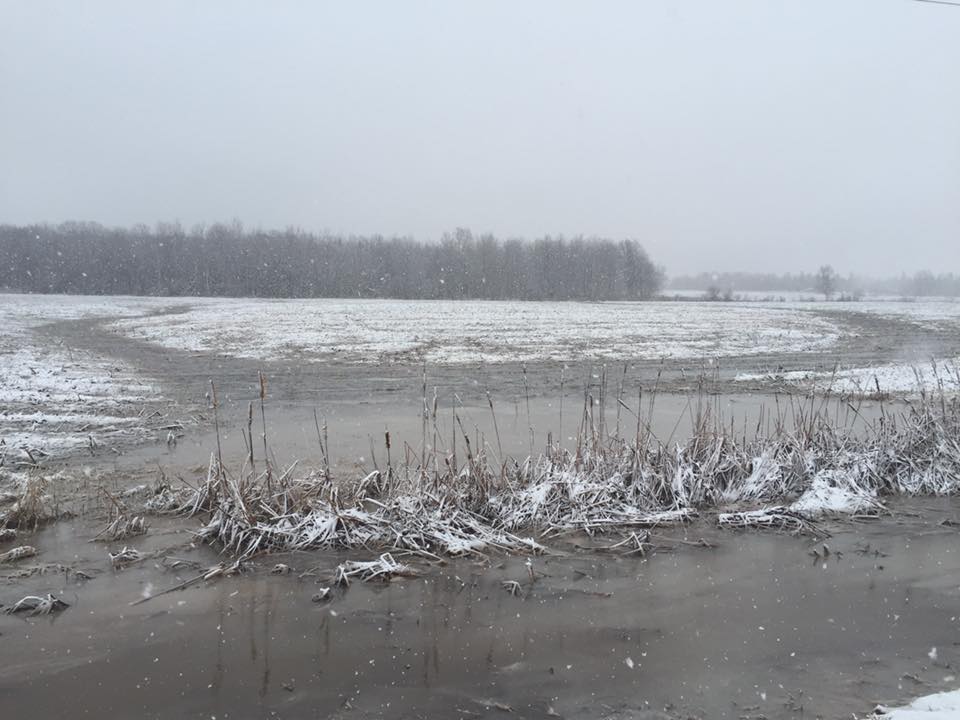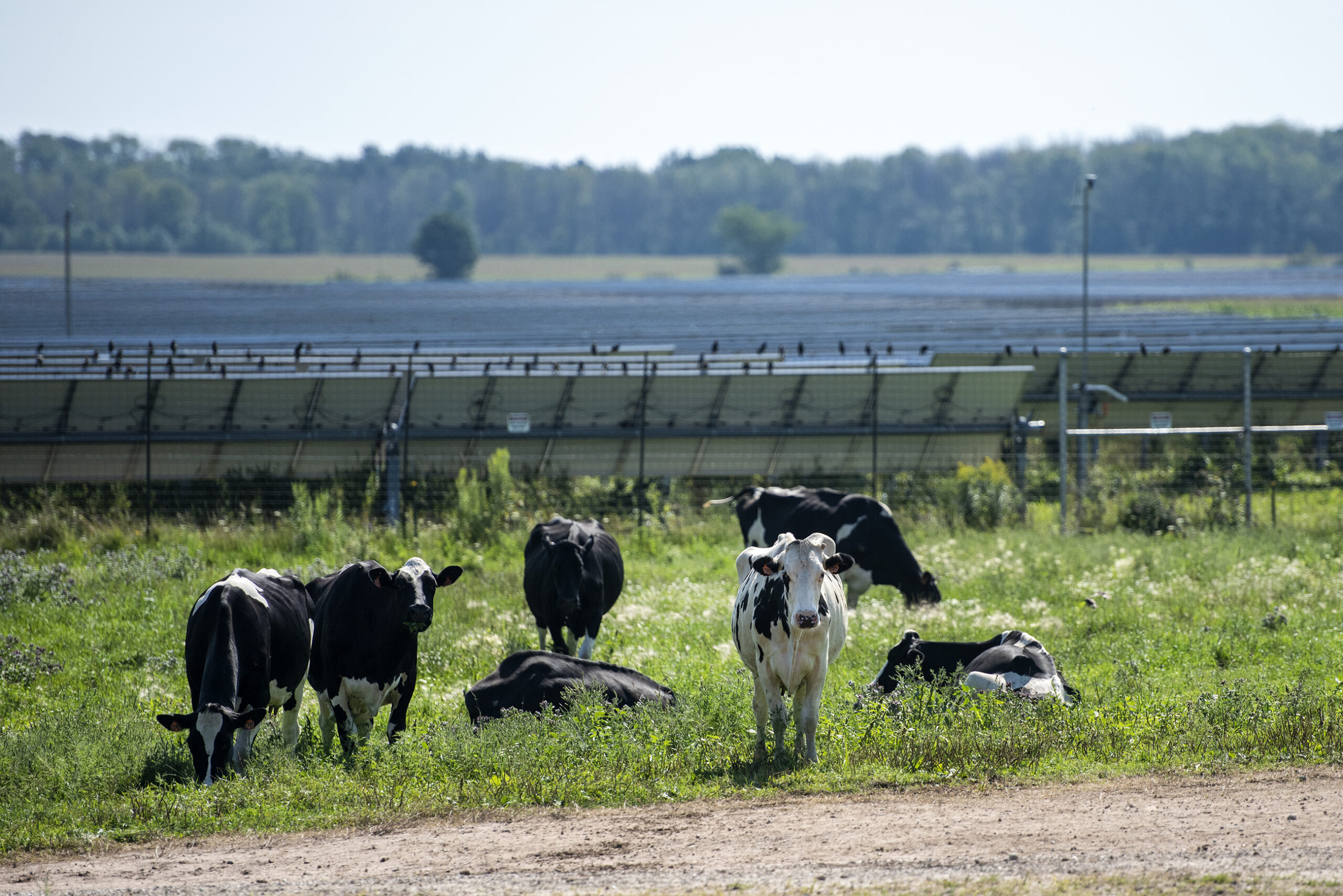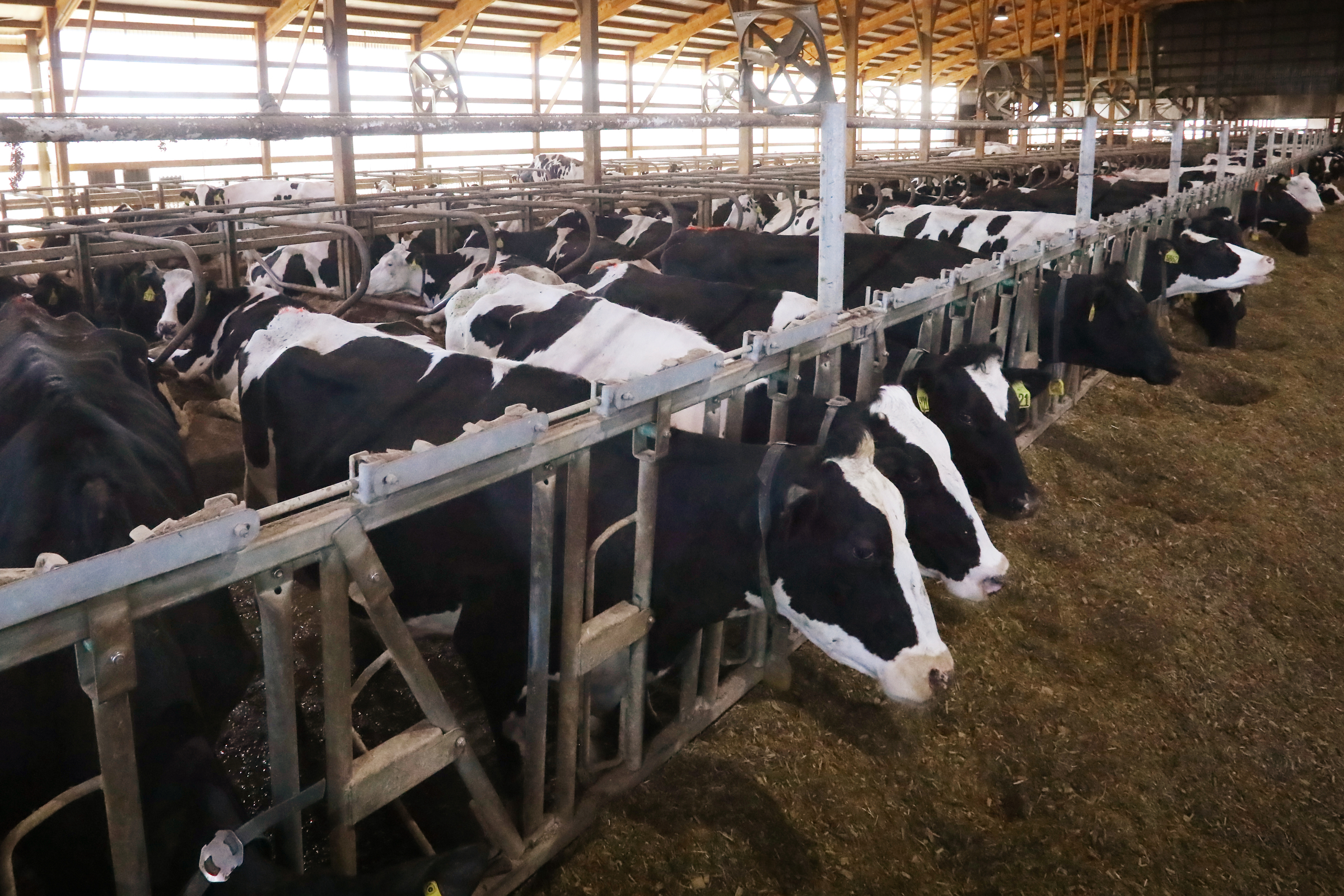The city of Ashland is asking the state to put the brakes on its permitting process for a large hog farm planned near Lake Superior, but state officials say their hands are tied.
The Ashland Common Council passed a resolution last month requesting the Wisconsin Department of Natural Resources and surrounding local governments halt the permitting process. Iowa-based Reicks View Farms wants to build a farm for 26,000 hogs in the town of Eileen. Ashland officials want time to develop a plan to protect its drinking water because the city’s water intake is downstream from the proposed project.
However, state law prevents the agency from holding off on its review, according to Nancy Larson, acting deputy director for the agency’s Watershed Management Bureau.
Stay informed on the latest news
Sign up for WPR’s email newsletter.
“It just so happens that we’re in a holding pattern. We don’t have a permit application that we can act on at this point,” said Larson.
Larson said the state is still waiting for written land contracts on where manure would be spread or injected, as well as whether Reicks will submit revised plans due to wetlands on the site. The Iowa operator would either need to adjust plans or apply for a wetlands permit for the project.
In the meantime, Larson said the city can still move forward to develop what’s known as a Source Water Protection Plan. The plans are part of changes under the federal Safe Drinking Water Act in 1996. The changes required states to conduct assessments of public drinking water systems by 2002. The Wisconsin DNR evaluated more than 11,000 systems and encouraged water utilities to develop protection plans. Ashland City Councilor Pat Kinney said the city is just now beginning the process due in part to potential costs.
“Resources are limited, but also there wasn’t anything that would’ve been considered a large threat to our water supply,” said Kinney.
However, Kinney fears the 10 million gallons of manure that would be produced by the hog farm each year will find its way into the Fish Creek Watershed, which drains into the Chequamegon Bay of Lake Superior.
“If we need to extend our intake pipe further out into the lake to reduce the amount of material that we don’t want in our water supply that would cost roughly in the $4 to $6 million range,” said Kinney.
Kinney is hoping the DNR will reconsider its decision, adding that state laws seem contradictory at times in terms of protecting water quality and public health. In the meantime, the city is creating a committee to examine ways to protect its drinking water.
“It could be working more with some of the farmers to find some alternatives to what they are currently doing in their farming operations that may well help them be profitable but at the same time help protect the water,” said Kinney.
A spokesman with Reicks View Farms didn’t respond to requests for comment.
Wisconsin Public Radio, © Copyright 2024, Board of Regents of the University of Wisconsin System and Wisconsin Educational Communications Board.





